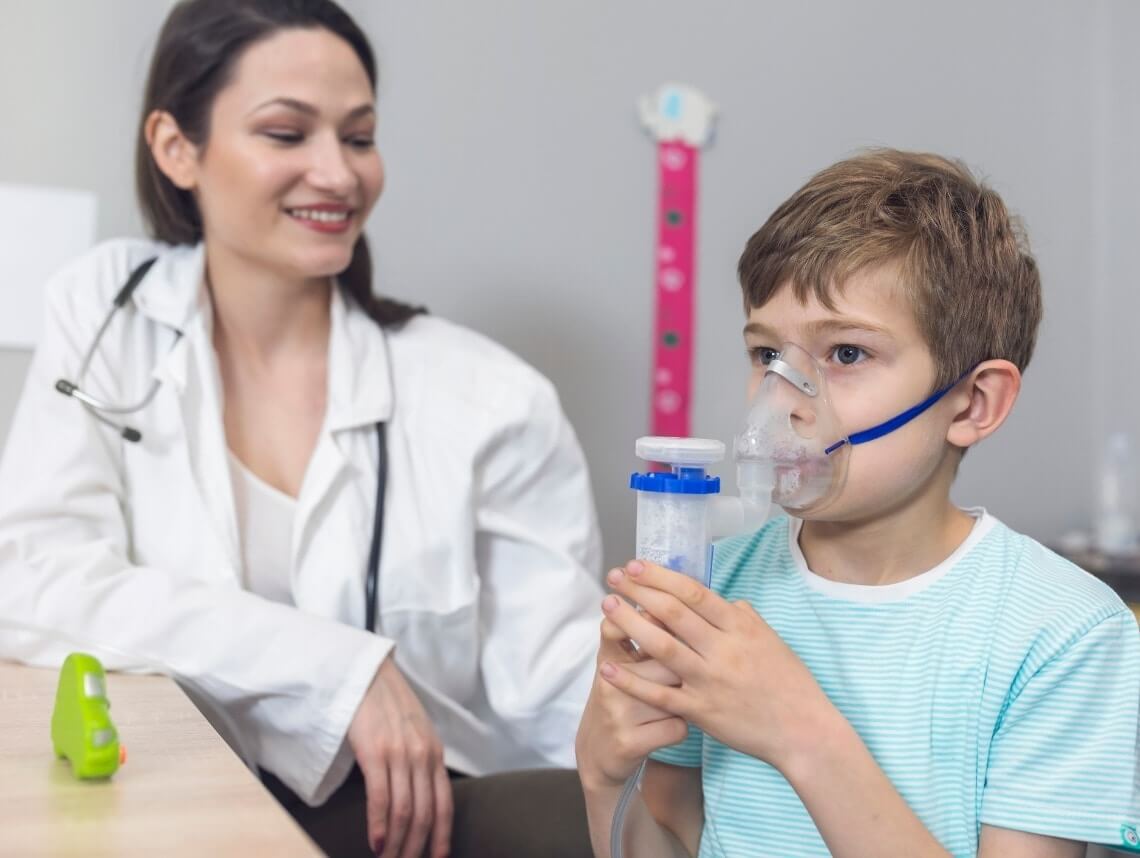The trachea (windpipe) allows for your child to breathe. In some conditions — like tracheomalacia — it can underdevelop before birth, resulting in a weak or damaged windpipe. But, the trachea isn’t the only part of the throat that can cause breathing difficulties. The larynx can also play a major role. The larynx is your voice box, and when the voice box doesn’t develop properly, it can lead to noisy breathing or other breathing problems. What can you do if your child has laryngomalacia? And, how can you identify the symptoms?
Causes of Laryngomalacia
There is no clear reason for why children underdevelop their larynx. Since this happens during the development of the baby while in the uterus, it is difficult to identify before the delivery. Most theories point to the muscles being unable to strengthen enough to support the voice box, but it could also be a neurological condition impacting the nerves of the vocal cords. Other theories point to gastroesophageal reflux (GERD) also playing a role.
Symptoms of Laryngomalacia
One sure-tell sign that your child has laryngomalacia is if they make a harsh, squeaky sound when breathing in. This can occur as soon as after birth, but in most cases, it develops a few weeks after birth. Symptoms of laryngomalacia worsen over several months — with serious signs including:
- Trouble breathing
- Feeding problems
- Poor weight gain
- Breathing pauses (apnea)
- Blue skin or lip color
Diagnosis and Treatment
Most babies are diagnosed quickly after birth, with the doctors suspecting laryngomalacia during the baby’s initial exams. But, to confirm the diagnosis, you should take your baby to a pediatric ear, nose, and throat specialist to get a flexible laryngoscopy.
The doctor will pass a thin tube through your child’s nose or mouth to look at the airway and vocal cords. This test may also include checking their oxygen levels and any swallowing problems.
Once diagnosed, it’s just a matter of treating the symptoms of the condition. Laryngomalacia typically gets better on its own — often by your baby’s first birthday. Your child will require regular exams to check their breathing and weight gain. If your baby also experiences GER, they will likely be prescribed an anti-flux medicine.
If your baby has severe breathing problems, they may need a surgery called supraglottoplasty. This procedure is done through the baby’s mouth to tighten the floppy tissue above the voice box. This can help improve your child’s feeding and breathing.
How to Care for Your Child with Laryngomalacia
Depending on the severity of your child’s condition, they may need a CPAP machine to help them breathe. If they require surgery, you may need a temporary feeding tube to help them eat. These scenarios require extra attentive care — including cleaning and maintaining feeding tubes.
Aside from severe cases, the best thing you can do is monitor their symptoms and keep an eye out for complications. It’s likely that your child’s breathing may get worse before it becomes better. This is fairly normal. While most children’s symptoms completely clear up, some older children may experience noisy breathing while exercising, during a viral infection, or when sleeping. These should be minor and aren’t a reason for alarm.
Contact Sonas for Home Health Care in Florida
It can be hard to balance your time between work, home, and caring for a child. That’s why our team of skilled professionals at Sonas Home Health are here to help.
Our home care services offer support in the comfort of your home. We hire loving and competent nurses to provide customized care for families — from a few hours a day to around-the-clock supervision. Contact us directly to speak with a home health care professional or request a free in-home assessment. Together we can determine the best plan of action to keep your loved ones happy and healthy.
If you or a loved one are considering Pediatric Home Health Care Services in Florida, contact the caring staff at Sonas Home Health Care. Call today at (888) 592-5855.
This blog was reviewed by Jillian Miller BSN, RN — Director of Nursing for Sonas Home Health Care’s Tampa Bay market — for clinical accuracy. Jillian Miller has been a nurse for 16 years — working primarily in pediatrics. She believes the best part of working with the pediatric population is when you see smiles from clients when you first enter the room. She loves seeing the difference you can make in families’ lives while providing the best care possible for them.

